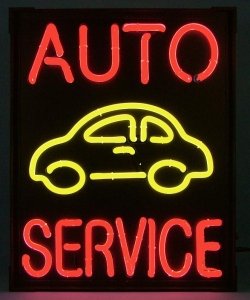If you’re a mechanic just beginning your career, it might be tempting to take a few shortcuts to try and get ahead. However, taking the high road and being honest is not only in your customers’ best interests but, is in your best interest as well. Here are some reasons why. Click read more.
Dishonesty loses business
Running scams to make a quick buck might bring you short term gains, but will result in long-term losses. It only takes once for a customer to be ripped off by an auto repair shop to lose that customer’s business for good – and it won’t just be that customer you’ll lose. For every unsatisfied customer, there are countless friends, family, coworkers, and acquaintances who will hear about that customer’s bad experience. Not only that, with the power of the internet and the countless websites specializing in reviewing local businesses, you and your shop’s reputation will be instantly damaged on a large scale. That’s a lot of potential business and revenue to lose.
Dishonesty is dangerous
Not only is dishonesty bad for business, but it’s also extremely dangerous. Neglect to make a proper repair and at best, the automobile will be further damaged. At worst, the bogus repairs could result in an accident. Do you really want to be responsible for that harmful potential?
Honesty builds business
Just as word-of-mouth can do permanent damage to a shop or mechanic’s reputation, it can also be fantastic for business. More often than not, people will go to a shop on a friend’s recommendation alone. After all, if you have an automobile in need of repair, which auto shop are you going to take it to: the one with the fancy advertisements or the one where someone you know had a great experience? Many auto shops don’t even advertise; they don’t need to, because their word-of-mouth business is so good.
Tricks of the trade:
Unfortunately, even if the mechanic is honest, they are still categorized with the dishonest shops. So, what’s the best way to run an honest shop and build a great reputation?
- Go by the book: The flat rate manual lists exactly how long each type of repair should take. Following this manual and charging for labor accordingly is good both for you and for your customers. It’s fair to your customers, because each job is always charged for the same labor costs. It’s good for you, because as you gain more experience, you will be able to do the repairs in less time than is required.
- Use your own parts: Customers may ask you to install a part they bring in. Don’t do it. If something should go wrong because of that part, you will be held responsible. If your shop is equipped with the needed automotive parts, tools and BendPak Lifts for the work you will be performing, you will not need to be using customer given parts. Many shops offer the option of either OEM (original equipment manufacturer) parts or aftermarket parts. Some shops will also offer rebuilt parts. Having these options available will give your customers good alternatives, while limiting your liability.
- Give it away: At first glance, it may not make a lot of sense to give away goods and services. However, if a customer comes in for a minor repair or fluid refill, doing that for free builds good will. That, in turn, brings repeat business and new word-of-mouth customers. Your returns on investment will more than make up for any short-term loss in either time or money.
- Do quality work: It may seem like a no-brainer, but doing quality work is a proven way to keep things honest and to keep customers coming back. Always do work that you’re proud to stand by.
It is a widely known fact that consumers must always prepare for the risk of being ripped off by an auto repair shop. Don’t be that shop or that mechanic. If you find yourself working for a shop that engages in shady practices, walk away. Stick to your own standards and you will find it is well worth it
This post was written and contributed by Brian Bronzino. Brian has been a mechanic for over ten years, and in his free time he writes about the automotive repair industry for ASEdeals.com


